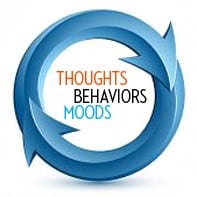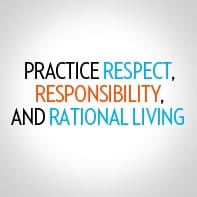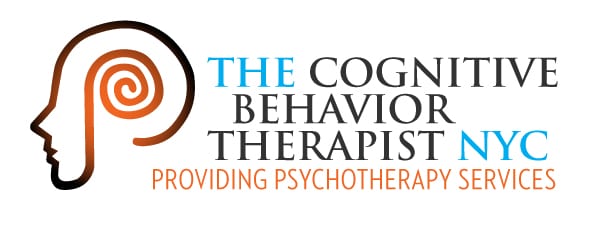Developing an understanding of one’s own individual decision-making processes and working to enhance those strategies is one of the most valuable psychological/meta-cognitive processes one can undergo.
The feedback I received in response to my previous post on “non decision making”, told me that my audience was not only on board with this process, but eager to learn more about decision strategy as well. So in response, I have decided to present a series of articles over the next few weeks to help you avoid “decision-making strategy neglect” in both your individual lives and within your organizations (if you are in a decision-making position).

Stages:
One way to view the process is to break decision-making down into a two-stage process.
Stage one is the analysis stage, where information is gathered and then analyzed. Stage two is the solution focus stage, where a solution is decided upon and then implemented.
For now, we will focus on Stage One.
Maximizer vs. Satisficers
Depending how much information you require and how much time you spend analyzing the information before moving on to the solution focused stage determines whether or not you are considered a “maximizer” or a “satisficer” in your decision making style (Driver, Brousseau & Hunsaker, 1998)
Maximizers are those who seek to gather ALL the information before making a decision. They invest time, attention and energy. They take advantage of all of the resources available to them with the goal of selecting the “optimal” solution. They react slower in the decision-making arena than satisficers do.
Satisficers on the other hand pride themselves on reacting in an expedited manner and being decisive. They usually make decisions based on the information at hand or with minimal amounts of information with the goal of selecting the “best available” or a “good enough” decision.
Maximizing is appealing since it can increase the confidence we have in our decisions. Furthermore, sometimes the difference between the “BEST” decision and a “GOOD” decision is a meaningful difference, so there is benefit to the added investment.
However, acting as a maximizer is not always practical since it’s often difficult to implement as the level of information you seek is not always available or is expensive. This in turn may lead to the over-expenditure of limited resources (i.e. time, money, energy, attention) and as a result you may end up feeling overwhelmed or exhausted, decreasing your chances of either moving onward to the solution stage or leaving your resources too depleted to effectively implement the solution in the next stage.
Satisficers run the risk of missing out on the “optimal” solution since they make decisions as information becomes available. They find solutions that are minimally acceptable, but meet a set of standards. The satisfiers’ attitude is simply: an available decision is sometimes the “best” decision, since it is all that is necessary to accomplish your goal or at least prevent complete failure.
Satisficers work under the premise that the added investment of the Maximizer does not guarantee a better outcome or the upside at its best may not be enough to justify the resource investment. Therefore, this style takes into account the limitations imposed by resources (both internal and external), while allowing us to get the job done. This style it has been heavily supported as a decision making style in organizations (see Herbert Simon’s Administrative Model for more or my future posts).
Both styles of information gathering and analysis have their advantages and disadvantages. The most important thing to realize is that the optimal strategy is highly situational dependent, which means that one strategy does not work for all. For example you would want to adopt a maximizing strategy on a multiple choice exam, even if it meant not answering all of the questions since you need to select the “best” answer in order to receive any credit, but you would be better off applying a satisficer approach when taking an essay exam, since you most likely would be better off answering all of the questions to some degree, regardless if they were perfect.
Sometimes combining strategies can be the best strategy in order to optimize your end goal, which is usually the most important component anyway. For example, a satisficer attitude about decisions to accept dates or job interviews would mean you would set standards and remain open to accepting invitations as long as they met your minimum requirements. Thus, when it came time to make a decision about who to marry or where to work for the long haul you could adopt a maximizer approach more readily, whereby you would be in better position to select what you believe is ideal.
Are you a maximizer or a satisficer?
Well hopefully you are both since the optimal strategy is situation dependent.
What to do to determine this and improve your skills:
- For the next week, monitor a few areas in your life where decision-making occurs. For e.g. Career/Work, Relationships, Family, Money, Travel, Health, etc.
- Remember to look at these systems both globally and internally. For example, how you make plans vs. whom you select as a friend. How you selected your gym or exercise regime vs. daily decisions to work out.
- Then each time you make a decision indicate if you are maximizing or satisficing. Focus on: How fast you are responding; how much information you require; were you asked to make a decision or did you feel compelled?
- Keep track over the week. Start with a sample. You don’t need to record every decision. The idea is to get your thinking process going and introduce these concepts
- Then go back over those decisions with the outcomes that occurred in mind. Ask yourself if you think you acted in accordance with the best decision strategy:
Did maximizing when you should have been satisficing cause you to miss out on an opportunity? Did satisficing when you should have been maximizing lead you to act short sighted?
Don’t get upset and be a Monday morning quarterback. That’s wasted time! Learn from it and continue the process.
Please post your comments directly here on the blog.
Thanks for reading. Contact me directly for more info on consulting.
Dr. Jayme
















Nice writing. You are on my RSS reader now so I can read more from you down the road.
Allen Taylor
Nice writing. You are on my RSS reader now so I can read more from you down the road.
Allen Taylor
Came to your post from the Columbia Alumni group on LinkedIn.
Observation for you to consider: Information is random or it is not. Think of a string of numbers (n) out to n…n digits, being randomized or not randomized. After a certain number of digits, sufficient information is algorithmically available, and consequently accessible to some application. To “humanize” this statement, most people cannot remember more than seven digit, randomized sequences; therefore, depending on the inherent limitations of memory, eventually all people become Satisficers. Thus, the Maximizer suffers under the illusion of being able to collect sufficient information when, in fact, information is always delimited.
As an old Chinese saying goes, “nothing will ever get started, if everything must first be overcome.”
Best wishes!
Came to your post from the Columbia Alumni group on LinkedIn.
Observation for you to consider: Information is random or it is not. Think of a string of numbers (n) out to n…n digits, being randomized or not randomized. After a certain number of digits, sufficient information is algorithmically available, and consequently accessible to some application. To “humanize” this statement, most people cannot remember more than seven digit, randomized sequences; therefore, depending on the inherent limitations of memory, eventually all people become Satisficers. Thus, the Maximizer suffers under the illusion of being able to collect sufficient information when, in fact, information is always delimited.
As an old Chinese saying goes, “nothing will ever get started, if everything must first be overcome.”
Best wishes!
As an energy management and personal performance specialist, as well as an entrepreneur. This is great to keep in mind. I particularly like the point about your decision making strategy being “situation dependent”. This makes sense. But being cognizent of what process is in play is helpful. Thanks
As an energy management and personal performance specialist, as well as an entrepreneur. This is great to keep in mind. I particularly like the point about your decision making strategy being “situation dependent”. This makes sense. But being cognizent of what process is in play is helpful. Thanks
Hi, gr8 post thanks for posting. Information is useful!
Hi, gr8 post thanks for posting. Information is useful!
Hi, interest post. I’ll write you later about few questions!
Hi, interest post. I’ll write you later about few questions!
Some very interesting points have been made here, it is refreshing to see that your site gets quality visitors.
Some very interesting points have been made here, it is refreshing to see that your site gets quality visitors.
Great site, I now have you bookmarked to come back again.
Great site, I now have you bookmarked to come back again.